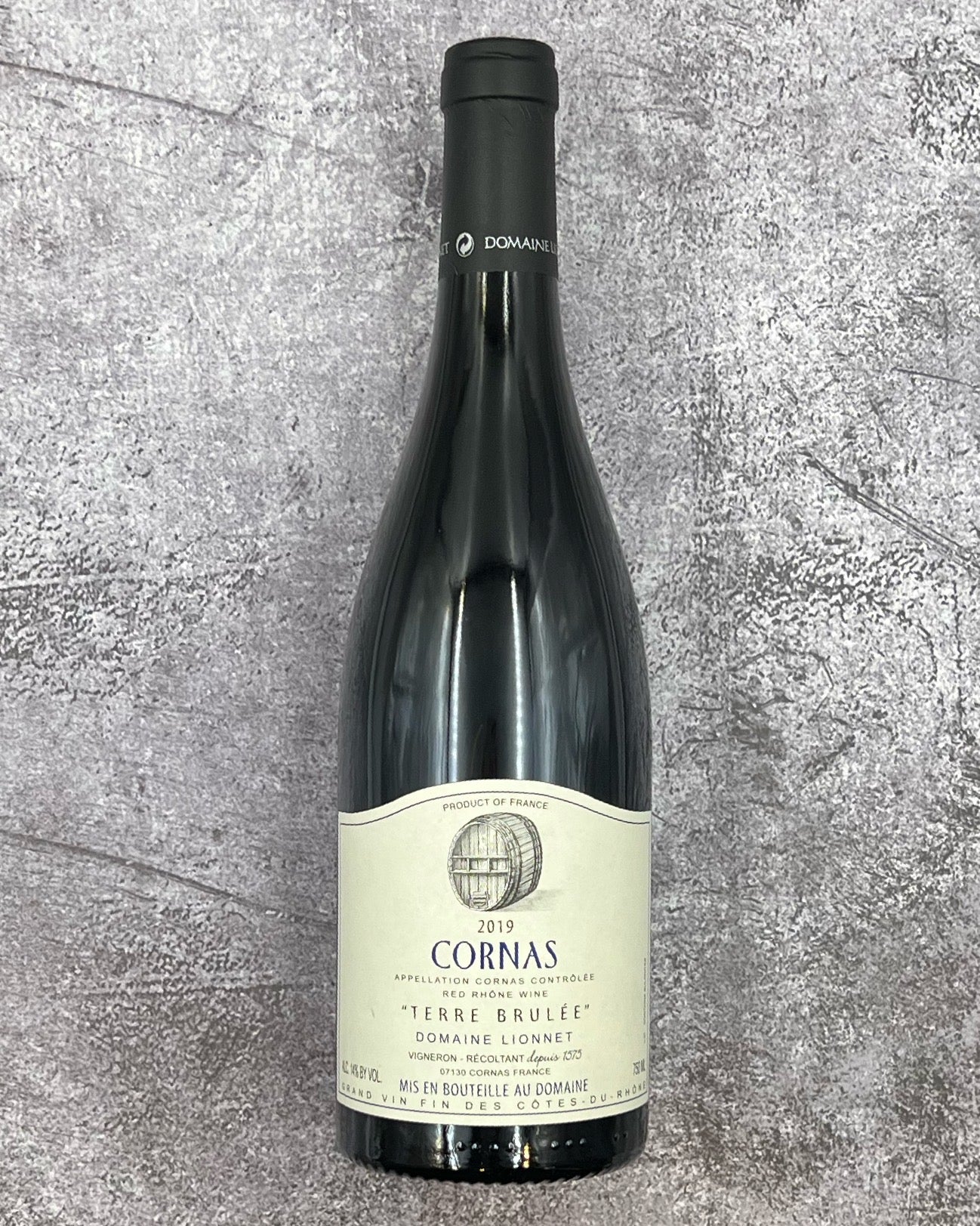Description
A leading producer of traditional Cornas, Domaine Lionnet has modernized only slightly over the last 20 years with the wines losing their former "rustic" character, while retaining complexity and terroir expression, very much in the style of the Gonons in Saint-Joseph.
Organic since 2007, whole-bunch fermentation with wild yeasts, aging in both 600 liter and 228 liter two to eight year-old oak casks. From 70 year-old vines on Combe, Chaillot and Pied la Vigne.
The robe is an inky purple, dark ruby at the meniscus. The nose is a bit backwards on opening—blue fruit, leather, a hint of tobacco, and a touch of black pepper. With air, black fruit and cassis notes emerge with notes of game, violets and black olive. The densely-packed palate offers swirling flavors of blackberry, black tea, cracked pepper, cherry pit, and a touch of anise on the the driving, muscular finish.
There’s plenty of structure here with firm—not coarse—tannins and good acidity to buoy the ripe fruit and concentration. Just this side of rustic, but compellingly old school. More country than proudly redneck, think Waylon vs. David Allen Coe, but the ample dry extract makes this a sweet song indeed. A fine pairing with roast duck legs and olives with farro, and should shine with heartier dishes, though I suspect this will shut down in a bit and truly shine with a decade or more in the cellar. This is terrific Cornas that has its roots in tradition and terroir. John McIlwain
Ludovic Izerable, a refugee from the Haute Savoie city of Grenoble, married Corinne Lionnet whose family has been growing grapes in the village of Cornas since 1575 (that’s correct … no typo … almost five centuries ago). Corinne took control of the domaine in 2003 when her father, Pierre, retired. Her and Ludovic now run the show.
The domaine is quite small, only 2.2 hectares at the moment (additional vineyards will be added to the domaine shortly enabling the Domaine Lionnet to also produce a Saint Joseph). The vineyards are organically farmed and are certified as such by “Ecocert”.
The vineyards are divided into four separate parcels across four distinct lieu-dits: Mazards, Combes, Chaillot and Brugeres. The vines are all between the ages of 40 and 100 years. Each parcel is harvested separately and vinification is done parcel by parcel as well. The harvest, of course, is manual with a severe selection being done in the vineyard.
The cuvaison is long (three weeks) and the fermentation is completely natural: indigenous yeasts and no other materials whatsoever (no albumin, no enzymes, no gelatins … zero!). The grapes are left intact; they are never destemmed. The fermentation occurs in cement vats; then, the wines are racked into large oak barrels (tonneaux and demi-muids). No new oak is used.

